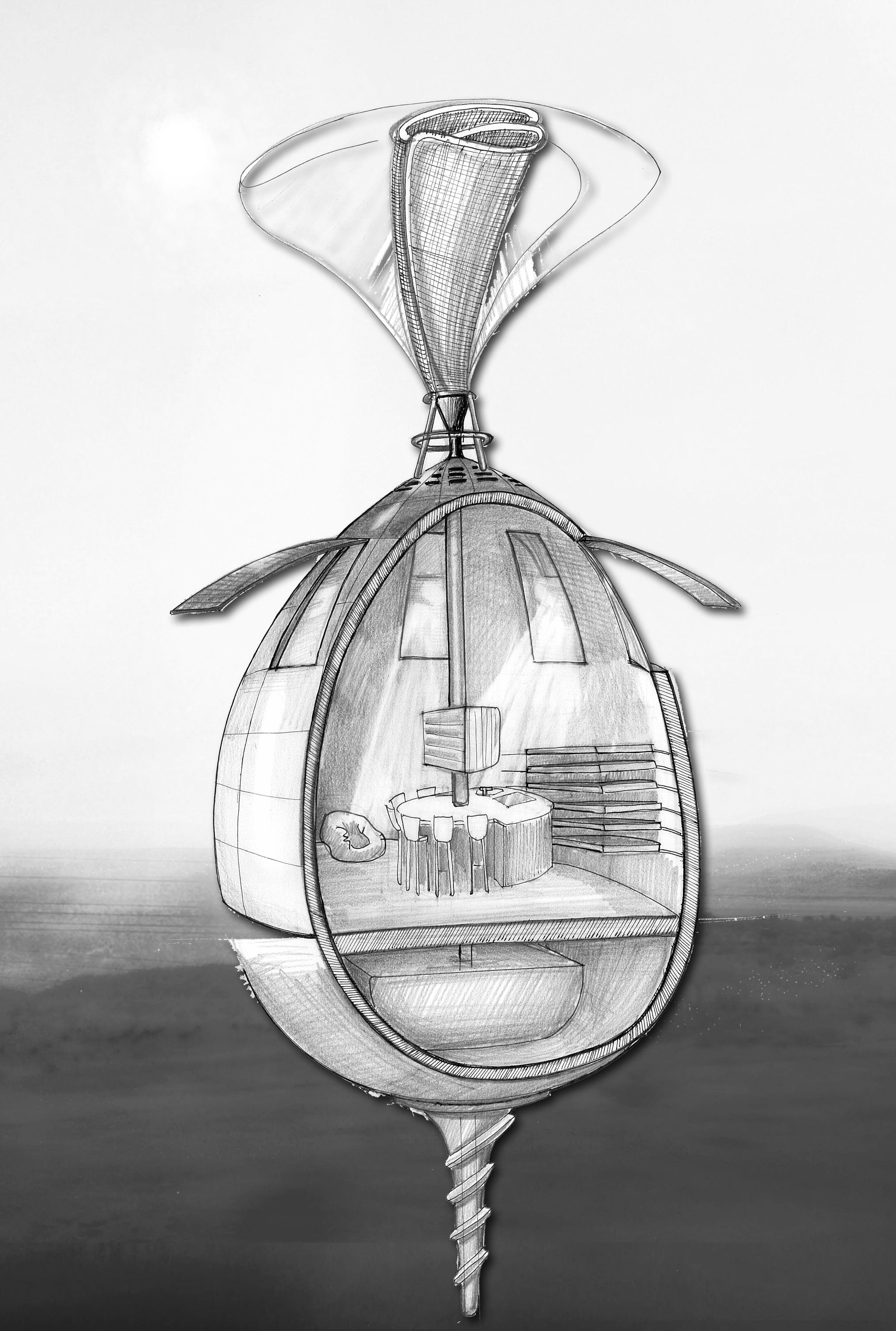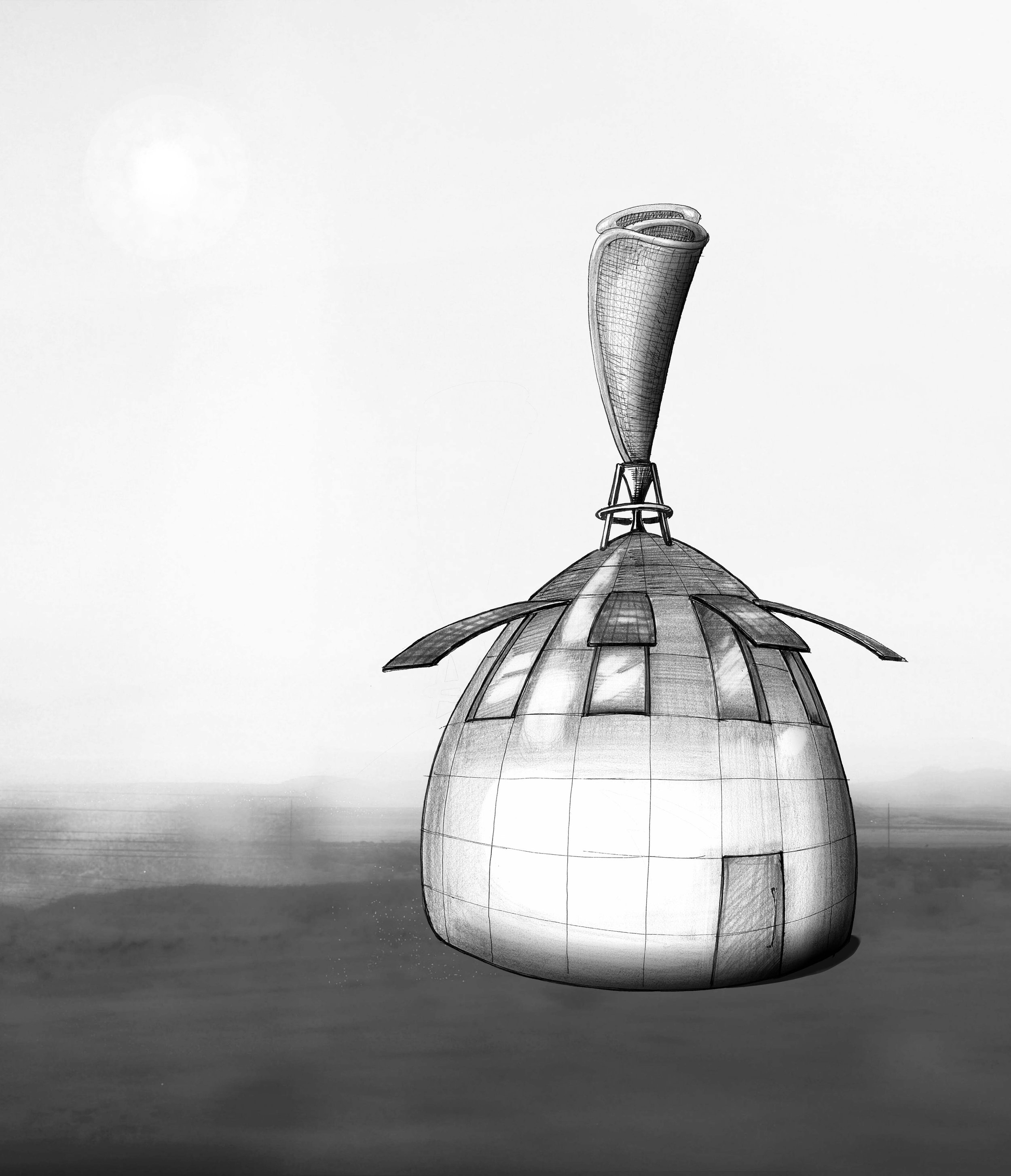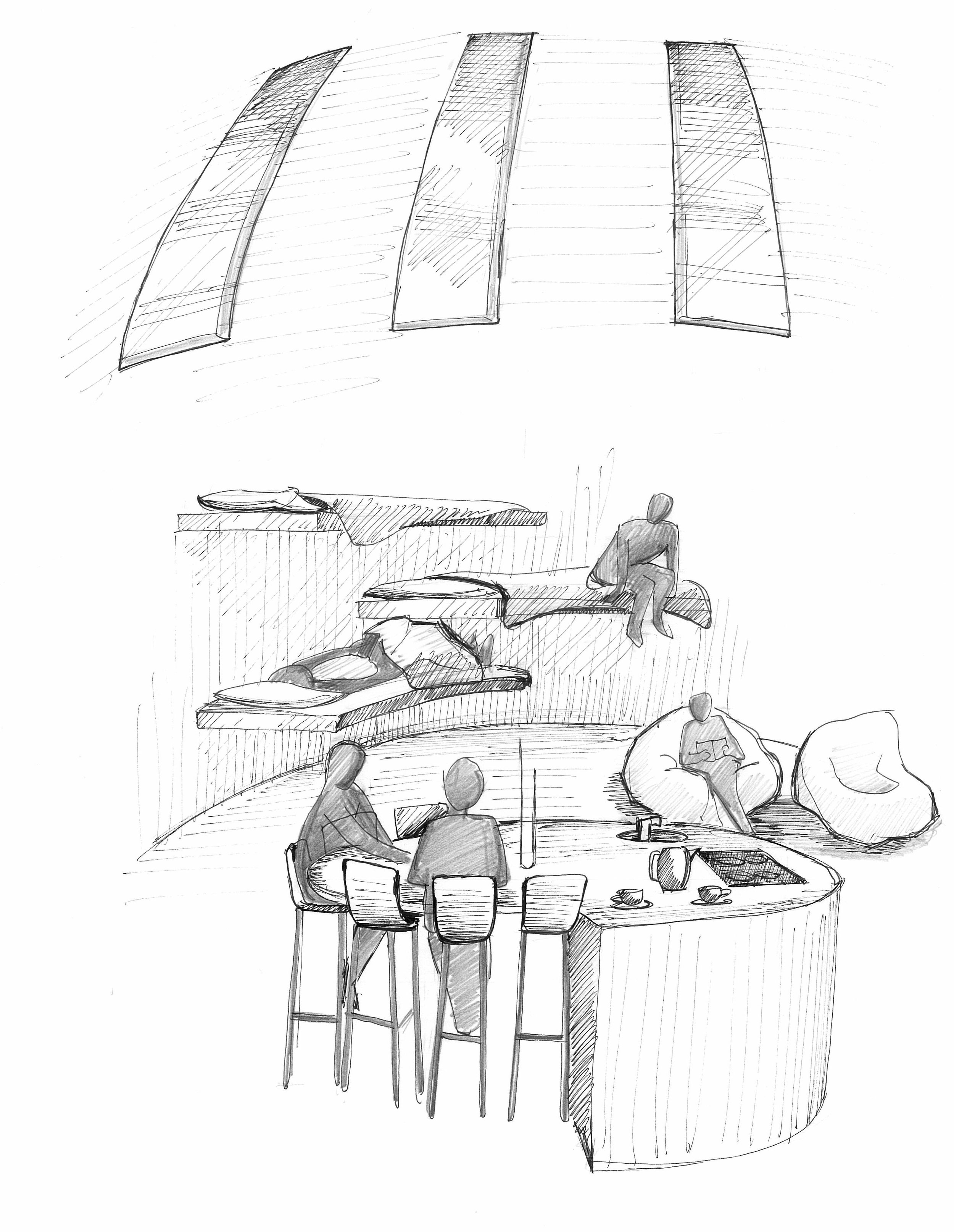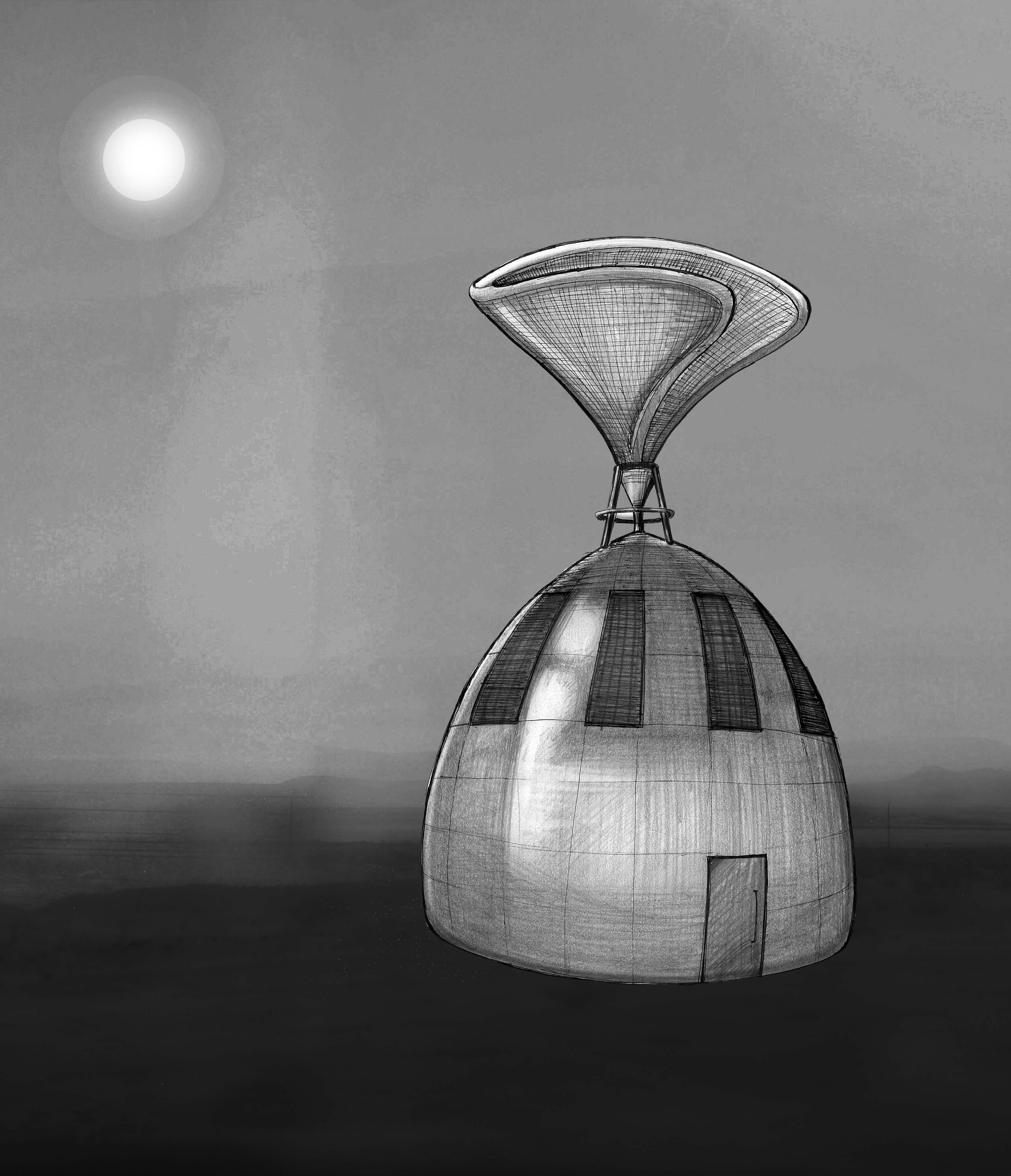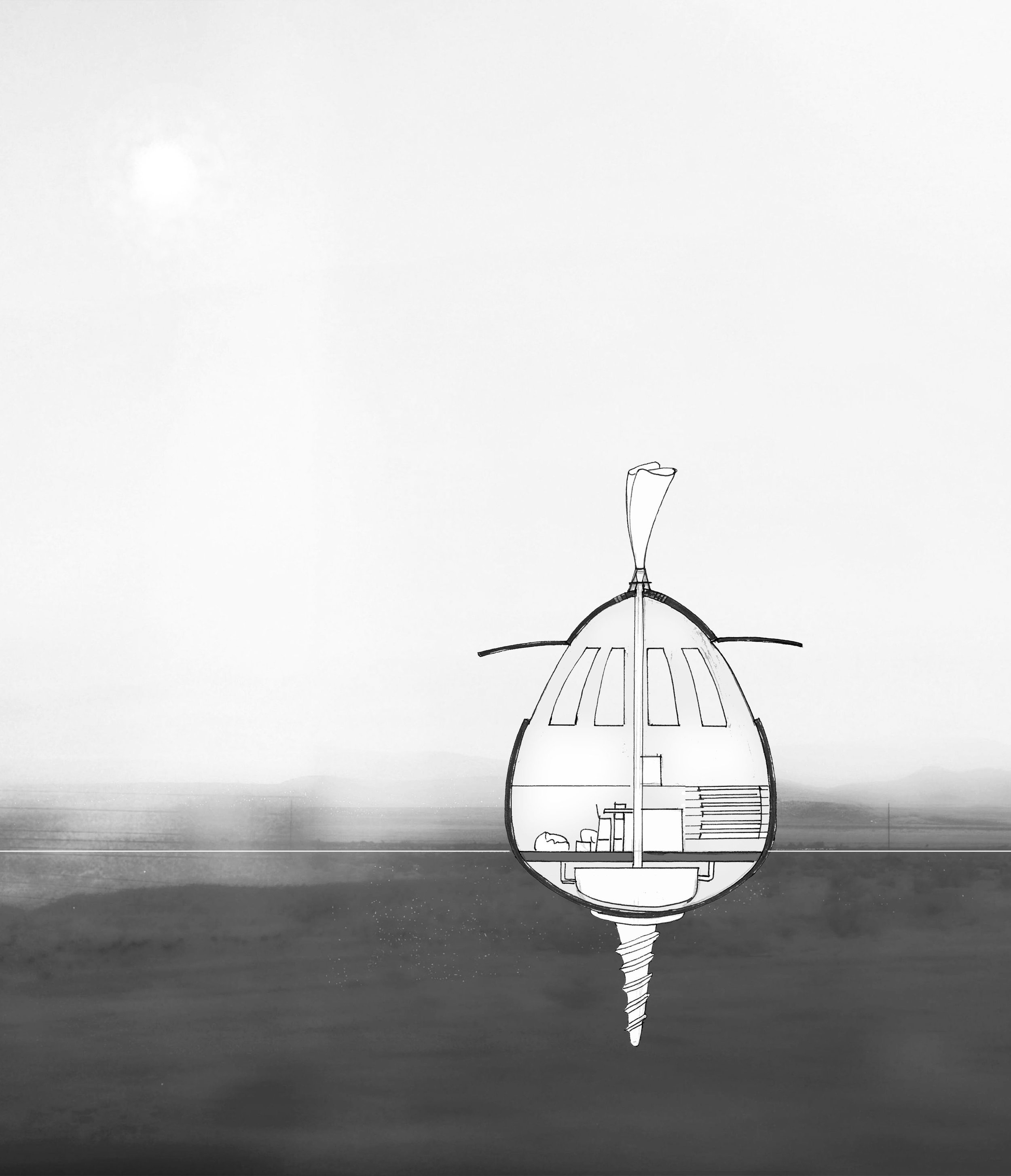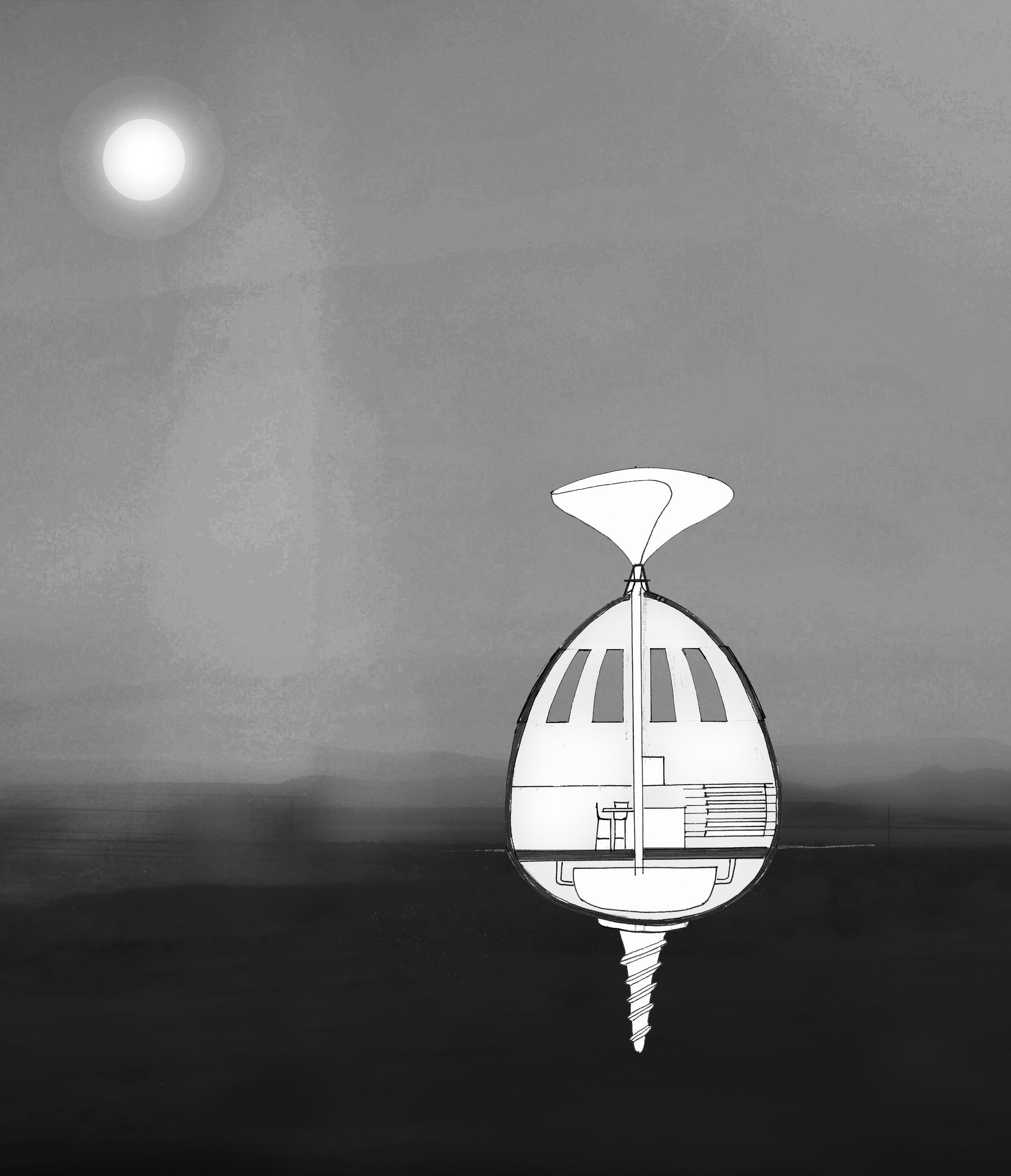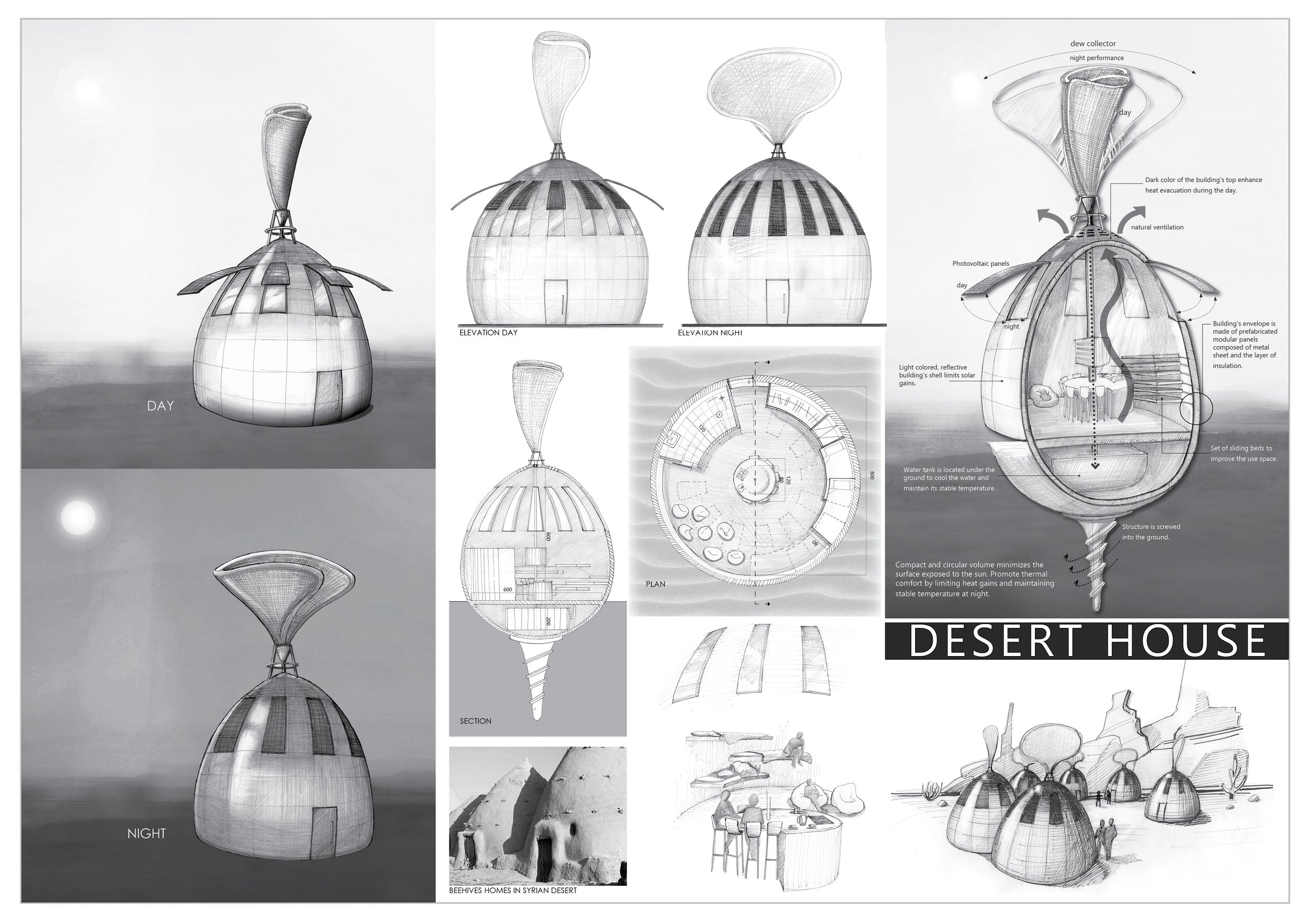

Desert Micro House
Conceptual project: 2021
A desert micro house, designed for the harsh conditions of a desert environment, have several key qualities that enable it to thrive while offering comfort and sustainability. Here are the main qualities:
Passive Solar Design and building shape is inspired by a traditional desert dwellings such as beehive homes.
Thermal Insulation: High-performance insulation in the walls, roof, and floor helps maintain a comfortable temperature by keeping the heat out during the day and trapping warmth inside at night.
Solar Panels: To harness the abundant sunlight in desert areas, solar panels are installed to provide electricity, making the house self-sustaining.
Water conservation: Dew collectors are placed on the top of the building and transfer the water to the underground reservoir.
Wind and Sand Protection: Many desert areas experience strong winds and sandstorms, so aerodynamic shape of the house helps to withstand these elements.
Efficient Use of Space: As a "micro house," the design emphasizes smart, efficient use of space. This involve multifunctional furniture, foldable or convertible pieces, and an open floor plan.
Simplicity: A minimalist approach to decoration and structure reduces the need for unnecessary materials and allows for a more sustainable lifestyle.
Natural cooling: The house utilize strategic ventilation, including skylights and ventilation systems, to promote natural cooling. Cross-breezes from open windows allow air to circulate, reducing reliance on air conditioning.
Thermal Mass: Materials with high thermal mass, like adobe or concrete, can absorb heat during the day and release it at night, helping to regulate the temperature.
Local, Sustainable Materials: Building materials that are locally sourced and have minimal environmental impact, such as adobe, rammed earth, or recycled materials, reduce the carbon footprint of the construction.
Self-Sufficiency: the houses are built to be off-grid, utilizing solar energy, composting waste systems, and independent water sources, allowing them to function without reliance on local utilities.

